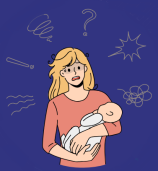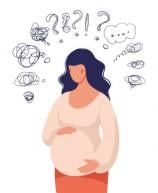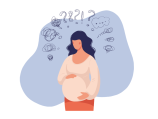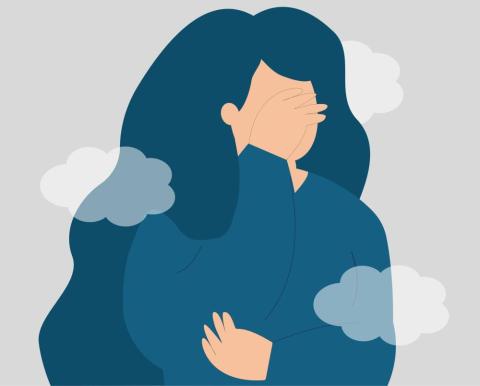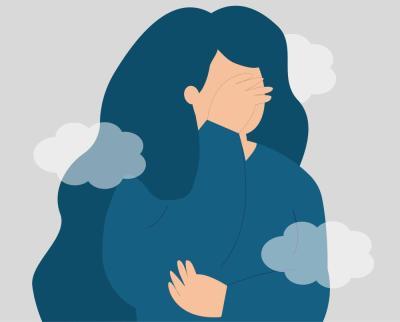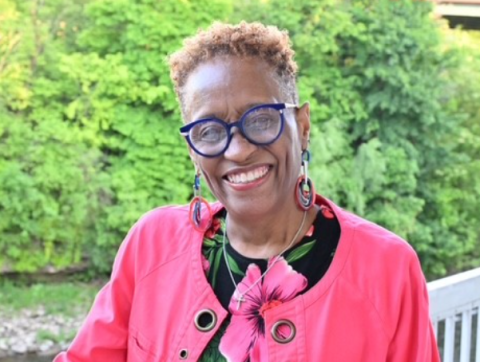Why I Wrote a Children’s Book about Postpartum Depression When I Was 9-Months Pregnant
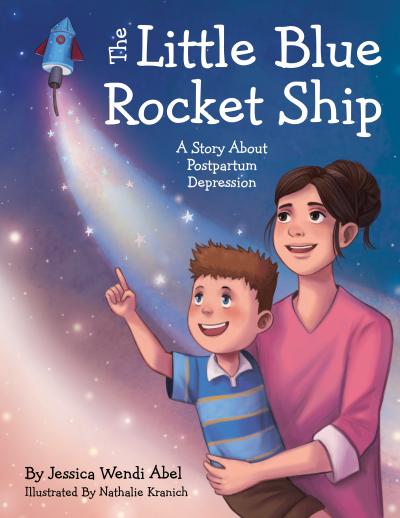 When I was growing up, I watched people on TV enter emergency rooms inaccurately believing they were suffering from a heart attack. After a full workup was done, the relieved TV doctor pronounced it was only a panic attack. For a long time, I wondered how someone could possibly confuse emotional stress from a blocked artery.
When I was growing up, I watched people on TV enter emergency rooms inaccurately believing they were suffering from a heart attack. After a full workup was done, the relieved TV doctor pronounced it was only a panic attack. For a long time, I wondered how someone could possibly confuse emotional stress from a blocked artery.
Fast forward two decades later. I was sitting in gridlock traffic on the Brooklyn-Queens Expressway, my thoughts drifting to how late the traffic would make me and the unpleasantness of the work ahead: cleaning out the apartment of my last-to-die grandparent. Suddenly, my heart was pounding and the air inside the car was stifling. When opening the windows didn’t help, I gripped the clammy steering wheel tighter. The tips of my toes and fingers were going numb and I was powerless to stop what I didn’t even know was happening.
Feeling that out of control while driving caused me to believe—with certainty—that I would get into a car accident and hurt myself or others. I was experiencing my first panic attack, and for the next several years, I experienced panic attacks in places I could not immediately escape. Gridlock traffic, a stopped train, a cramped airplane. Through cognitive behavior therapy (CBT) and medication, I was able to manage them.
Immediately after giving birth to my first son, panic returned in conjunction with the slow burn of depression. The year I became a mother was the darkest year of my life. I told this to no one for several years because at the time, the well-intentioned people in my life pointed to the baby in my arms as proof that I should be happy. I believed them. I should be happy. But what I wanted to feel and what I actually felt were grossly mismatched. The only way I could express myself was through sadness or rage. How was it possible that I did not know what I needed or wanted? Why wasn’t I able to communicate with my own family? I inaccurately believed I was an awful mother, and there was no relieved TV doctor to pronounce it was only postpartum depression and anxiety.
After my first baby turned one, I stopped breastfeeding and returned to my pre-pregnancy manageable levels of anxiety and depression. Unwilling to go back to that dark place again, I tried to make peace with the idea that my son would be an only child. But I couldn’t. I wanted to grow my family and I didn’t want my fears to stop this from happening. I armed myself with research about postpartum depression and postpartum anxiety because it made me feel less alone. According to the American Psychological Association, up to 1 in 7 women develop postpartum depression. I also learned that having a history of depression increases your risk for developing postpartum depression (Mayo Clinic). Nearly 50% of mothers with postpartum depression are not diagnosed by a health professional and 80% of women with postpartum depression will achieve a full recovery, according to PostpartumDepression.org. Learning about the facts and connecting with other moms through postpartum support groups were critical to my recovery.
When I was 9-months pregnant with my second baby, I tried to find a children’s picture book to read with my nearly five-year-old about a family living with the most common condition after childbirth—postpartum depression—and was shocked to find no book like this in 2020. I set out to create a resource for the 1 in 7 women who will experience postpartum depression along with their families. The Little Blue Rocket Ship: A Story About Postpartum Depression is told by a boy who sees changes in his mom after she has a baby. As the boy explores his own feelings and questions, he is reassured by his mom’s continued love for him. Blending together fiction storytelling with supportive communication strategies, The Little Blue Rocket Ship encourages open dialogue about postpartum depression between family members.
In sharing my story with ADAA, I hope to provide support and a voice to families impacted by depression and anxiety. You are seen and you are not alone.
Jessica Wendi Abel is a speech-language pathologist and school administrator. Her book can be purchased on Amazon or Barnes & Noble. To learn more about her advocacy work and collaborations, please visit https://www.LittleBlueRocketShip.com/about
- Share Your Story and Voice and Help #breakthestigma Around Mental Health
- Support ADAA's Mission - Every Gift Makes an Impact
- Join an ADAA Online Peer to Peer Support Community
- Find Your Therapist
